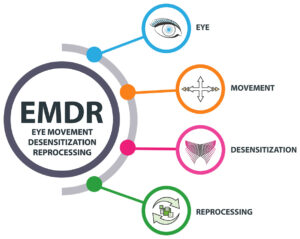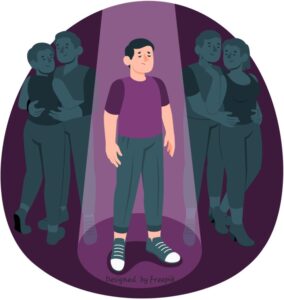Remember the good ol’ times when summer vacations meant many adventures we would embark on because boredom prompted us to do it?
Ah, seems like a dream now! No matter where you go, you see people caught up in devices. Infants, teenagers, and adults alike. Activities like gardening and creative pursuits take up much more energy than playing games on your device.
It must seem a bit shocking to be so concerned about something as outwardly innocent as video games. However, many studies have shown concerning results regarding the negative impact of gaming– whether it be online or offline. Therapy for video game addiction is under scientific investigation too.
Signs of Video Game Addiction
The latest versions of the ICD and DSM– which are used by medical professionals for diagnosing– include a section regarding problematic gaming behaviours.
The criteria for diagnosing such problematic gaming behaviours include:
- Thinking about gaming obsessively.
- Feeling angry, anxious, irritable, and sad when gaming is not accessible.
- Using video games to avoid facing challenging and stressful events in life.
- Engaging in other enjoyable activities less and less.
- Withdrawing from having interpersonal relationships such as those with family and friends.
- Performing poorly in school or at work.
- Spending increasingly longer durations on devices playing games
- Neglecting personal hygiene and grooming.
Such patterns of behaviour should last for more than a year to become eligible for a diagnosis.
What Causes Video Game Addiction?
The most commonly known reason behind developing an addiction is dopamine. It is a neurotransmitter associated with pleasurable feelings. Whenever we perform a pleasing activity, it causes a release of dopamine. Dopamine makes us feel positive emotions like happiness, joy, excitement. Organisms tend to avoid the negative and go after the positive. So we indulge in the same activity again hoping to experience the positive emotions as a result of it. This leads to addiction at times.
Many scholars equate video game addiction to substance use and gambling. Since video gaming does not bring about clear consequences like health and financial issues as in substance use and gambling, it is hard to detect and rectify.
In spite of that, it should be noted that video game addiction impairs personal, social, and occupational functioning. It leads to a decreased quality of life and is interrelated to anxiety and depression. This is the reason why reaching out for Therapy for Video Game Addiction
is important.
What Does Therapy for Video Game Addiction Involve?
Although the area is still under research, video game addiction is often tackled through talk therapy or psychotherapy. Psychotherapy involves different approaches used by a psychologist who teams up with you in helping you modify your thoughts, emotions, and behaviours that are causing distress. Some of the approaches psychologists take towards video game addiction are:
- Cognitive Behavioural Therapy (CBT)
It is the primary choice of therapy for video game addiction. It is based on the presumption that faults in thoughts, beliefs, and behaviours can give rise to psychological problems. These thoughts, beliefs, and behaviours can be replaced with those that are healthier. The focus here is on the current problems and their successful resolution through a collaborative outlook.
- Group Therapy
Loneliness and isolation is common in individuals going through a rough patch. Group therapy aims to provide relief by bringing you in contact with other people facing similar problems. Learning from another perspective and finding helpful strategies leads to an increased comfort. All this happens under the supervision of a psychologist who oversees the proceedings of these group sessions.
- Family Therapy or Couples Therapy
Lack of understanding and awareness about psychological problems like addiction causes conflicts and misunderstanding between families and couples that can further make already existing conditions worse. Family therapy and couples therapy aims to educate the clients’ families and partners about the situation to create dynamics that are more supportive.
Conclusion
About 6.5 hours is spent by an average user on the internet. That’s 40% of the waking time! That is a troubling statistic. Sure, technology and internet usage varies according to the person– people use it for networking, scrolling, gaming, shopping, getting chores done, and studying. But the line becomes blurry between a healthy amount of technology use to it becoming an addiction. Especially so, when everyone around you is on their devices too.
So one may ask, what is the incentive to use lesser technology? And the answer is: what life do YOU want for yourself? Welcome to your life. You get to live with whatever choice you make.
We are here to help you overcome your addiction.
How can CoachforMind help?
- Experienced Psychologists: We are a team of licensed RCI-registered clinical psychologists. Our team has the best practices involved in therapy for video game addiction.
- Personalised Approach: We are dedicated to treating our clients in the best suited way, carefully curated as per the needs of the client adhering to one-on-one, client-centred therapy.
- Scientific Techniques: Our treatment plans and therapeutic methods are based on highly researched, scientific findings such as CBT and behavioural therapies. These therapies are used in rewiring the brain into shifting from inattentive and hyperactive behaviours into healthy ways of coping from the issue and developing mindful habits.
- Quality service: We at CoachForMind ensure quality services in our treatment regime and therapeutic approaches. Our clients hold most value to us, so we ground our techniques in empathy while maintaining professionalism.
For more information, please visit our website or contact us directly at coachformind@gmail.com




